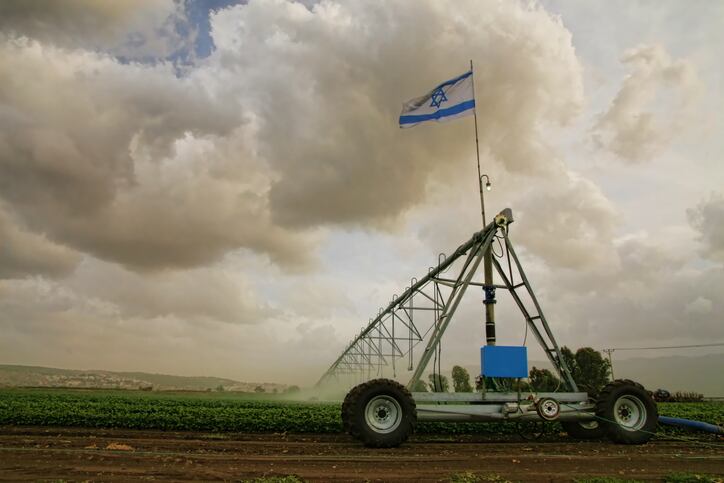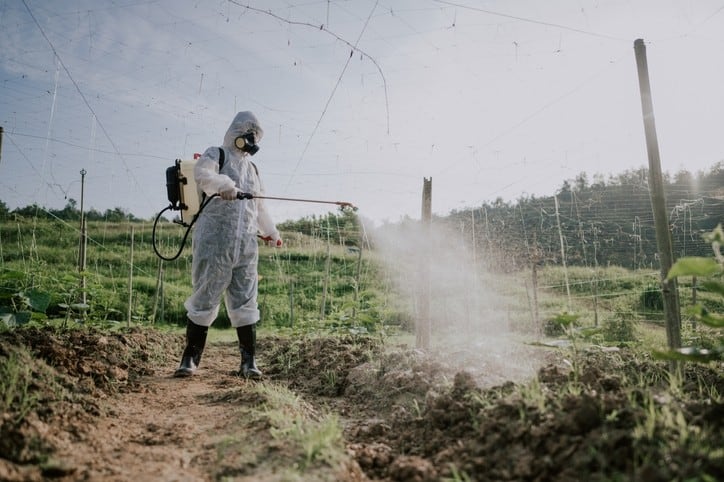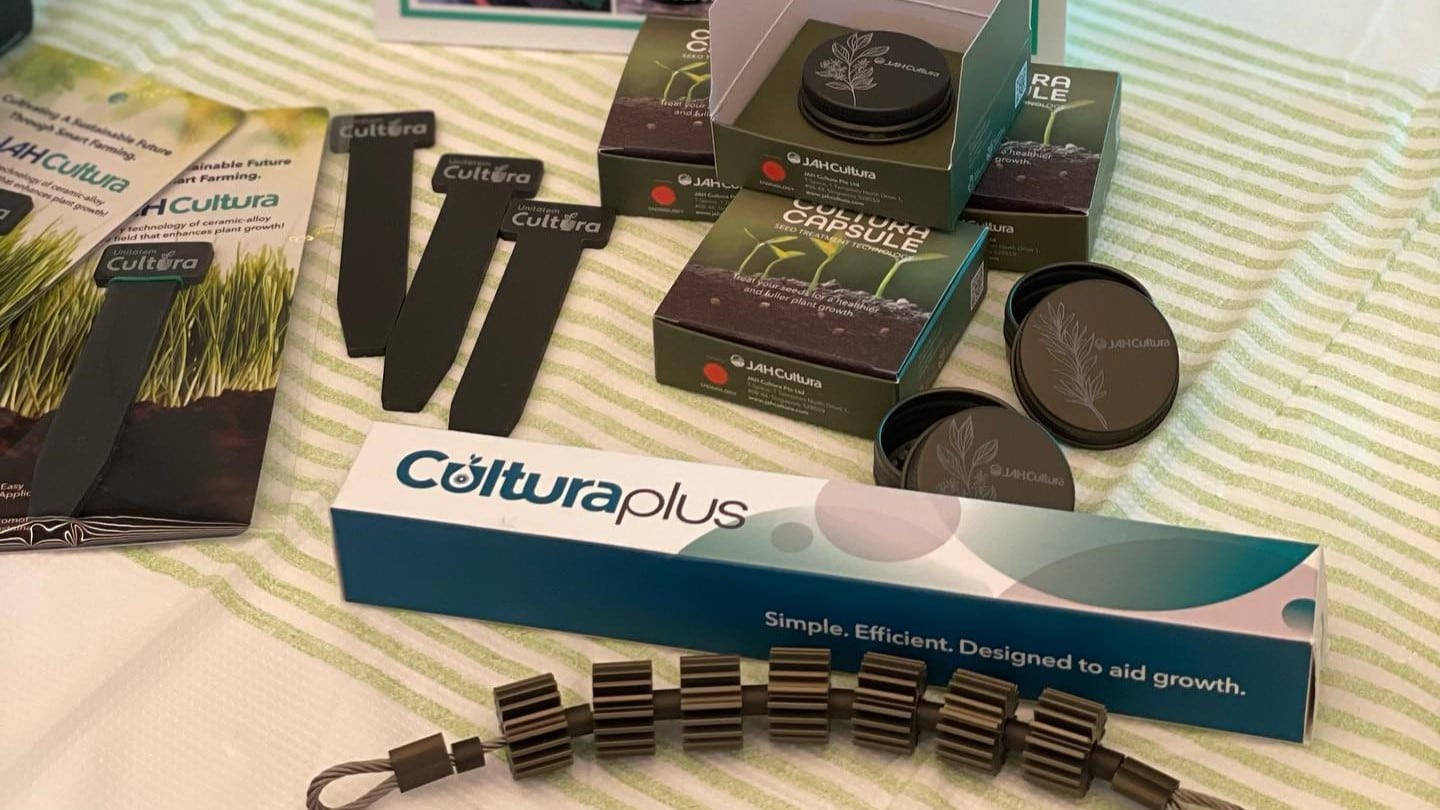How is the war with Hamas impacting Israel’s valuable agtech ecosystem? Israel has a population of just over nine million yet boasts more start-ups per capita than any other country in the world.
Despite the current challenges facing Israel, the country’s tech ecosystem as a whole remains “resilient and full of opportunities”, according to Tel Aviv-based non-profit Start-Up Nation Central.
Is this hope over reality? The war is reportedly costing the economy around US$260 million every day and 15% of its workforce has been called to reserve duty. Meanwhile, the Israeli investment ecosystem entered the second half of the year in a bad way already after a judicial overhaul proposed by the government at the start of the year spooked investors.
Investor participation in investment rounds has nosedived to the lowest level in the past nine years, and private funding by Israeli startups in the first half of 2023 dropped 29% year-on-year to a five-year low, according to a report published by SNC.
The problem of slowing investment is a global one, however. And SNC has noted that despite the ongoing economic turbulence, cybersecurity and climate tech sectors have demonstrated resilience in private funding, maintaining consistent performance levels between H1 2023 and H2 2022.
The agriculture tech sector is also bucking the trend, where advanced round investments have helped maintain stability in Q2. That’s in contrast to the food tech domain – where after a surge in new startups focusing on novel ingredients and alternative protein sources investments have slowed down in the first half of 2023 as many of these startups face challenges in scaling up production.
The agtech sector has consistently attracted strategic agri-investors, says SNC. This is demonstrated by N-Drip, which develops irrigation technology, and SeeTree, which helps farmers track the health of their trees, securing round C investments during this period – albeit this was before the 7 October Hamas attack drew, in the UN’s words, ‘hell’ to the region.
‘Investing during times of uncertainty in Israel can be strategic’
On the ground, Israeli-based agtech sector players have warned the immediate effect observed since the Hamas attack is a potential slowdown in innovation and investment. Short-term challenges they are experiencing range from supply chain complications to labour shortages and threats of missiles.
But we have been here before. Historically, argues the SNC, Israeli tech has shown a remarkable ability to survive and thrive following conflicts.
For example, in the aftermath of the Israel-Hezbollah War in the summer of 2006, 52 companies raised funds, with a 63% success rate for significant financial events compared to around 52% in other periods. The total funding was US$0.5 billion, an 11% increase from the previous half.
Again, in the second half of 2014 which witnessed the 50-day war in Gaza known as Operation Edge, total funding was US$1.74 billion, a 38% increase from the previous half. Despite a decrease in the number of companies raising funds during the conflicts, the amount of funding increased, and the success rates were higher than in the periods immediately before and after.
This demonstrates that companies raising funds during times of conflict can yield substantial returns, suggesting that investing during times of uncertainty in Israel can be strategic, believes SNC.
Amir Zaidman, chief business officer for the food-tech specific incubator The Kitchen Hub, agreed. He told AgTechNavigator it is too early to fully understand what might be the long-term ramifications of 7 October. “However, history teaches us that Israel’s economy is resilient and that the Israeli tech sector, and within it, the agtech and foodtech sub-sectors, are extremely strong and had overcome challenges in the past. In my honest opinion, these sectors will emerge from the current situation stronger more focused and motivated.”
Collaboration is accelerating
Much to his surprise, he told us, and despite the postponement of Israel’s leading agri-food tech conference FoodTechIL 2023, there’s evidence of innovation accelerating. “Israeli inventors and entrepreneurs are harnessing the emotional turmoil that was brought upon us to creating new innovative solutions to existing and emerging challenges.”
By way of example, startups are working together as a community, he said, to quickly train and employ students. Companies are offering to host other companies that might be situated near affected areas, and offering mutual help in overcoming delays in shipments.
Udi Alroy, CEO and co-founder of Carobway, which cultivates locally grown carob trees to boost carob-based product development, also noted a spirit of collaboration in the agtech sector. “As far as investments are concerned, it is generally quiet at this time, but this is a global phenomenon and not necessarily linked to the war in Israel,” he said.
“The main outcome of this escalation is that it will probably propel us to focus our technologies on reducing the need for human labour in both agriculture and food sectors. The high dependency on labour makes it difficult to function during these times. Currently in Israel, the civilians are very well organized. Many are joining non-governmental entities, such as Brothers and Sisters in Arms who are helping farmers maintain the continuity of their supply chains by volunteering in their fields and factories as they manage their day-to-day activities.”
Brothers and Sisters in Arms is a group of Israeli reservists and veterans opposed to the policies of Israel’s government.
Noga Sela Shalev, CEO of the Fresh Start foodtech incubator, was also bullish. “Israel is known for its incredible innovation and entrepreneurship,” she said. She agreed the main challenge for the agri-food sector is the scarcity of workers. “Our food and agriculture industry is broadly supported by volunteers filling in for the missing hands, crucial for ensuring produce will be plucked, collected, processed, and distributed to maintain our local supply. Various initiatives are established to support the displaced population; for example, our startups are employing students whose studies have been interrupted and who can now replace the working hands of those who have been recruited.”
The current scenario obviously sparks concerns, most prominently around fundraising, she noted. However, the Israeli government comprehends this urgency, as evidenced by the swift response and extraordinary initiatives from the IIA (Israel Innovation Authority), which stepped in to provide bridge financing and expedited funding plans for startups (across sectors), ensuring the continuity of their operations. “Private initiatives are also rising to the occasion, fostering remarkable opportunities to sustain Israeli innovation, either through funding or in-kind support.”
The IIA itself elaborated on how the government is stepping in the support the tech sector. “The government has implemented an immediate US$100 million fast-track programme to help technological companies with significant technological assets, and short runways for companies struggling to raise funds from their existing investors during these challenging times,” said Chai Avital, IIA Seed Fund & Technological Incubators Program Manager. “The matching process will include contributions from private investors, which are expected to total more than US$200 million. Furthermore, we (the IIA) have also implemented a series of special measures are designed to provide interim funding to face the challenges posed by this state of emergency. Furthermore, I am pleased to share that following our request from the EU and the Directorate of the Horizon Europe program, they have agreed to extend the deadline for submissions of Israeli researchers and companies applying to the, EIC Accelerator and the Pathfinder Challenges programmes. These programmes provide substantial grants of up to €2.5 million in addition to the possibility of gaining equity investment of up to additional €15 million.”
The Israeli ecosystem “continues to work tirelessly to develop, manufacture and deliver across all sectors,” he added. “Israeli high-tech companies operate on a global scale, diversifying investment opportunities and reducing regional risks.”
Israel is a global leader in the alternative protein investment sector, attracting around 36% of global investment – second only to the US and ahead of the entire EU put together. Israel is also number two for the number of protein cultivation and fermentation startups.
Jonathan Medved, CEO of Israeli online investment platform OurCrowd, which has a portfolio of 17 investments in foodtech start-ups including many alt-protein players, told us: “Key executives from many of our startups have been called up to the Israeli military reserves, but the companies continue to deliver and raise funds, based on long experience of annual military reserve duty and a shared sense of national mission to keep the economy on track. All our companies are meeting deadlines and fulfilling their service level agreements.”
Others, like Michal Bitterman, CEO & Co-founder at sustainability consultancy TNS Israel, noted the events pose significant challenge to farmers and, in turn, jeopardise Israel’s food security. Nir Goldstein, CEO of The Good Food Institute (GFI) Israel, agreed. He said that much like countries such as Singapore and the UAE, Israel must now prioritise building greater protein self-sufficiency and bolstering local food production within its borders. “Recall how Israel overcame water scarcity challenges through substantial investments in water desalination technology and infrastructure over the past decade,” he said. “Now, we envision a similar transformative journey for food security.”
Partnerships between Gaza and Israeli agri-food communities under threat
And what of the agtech sector in Gaza? Perhaps unsurprisingly, data around the Palestinian agricultural start-up community is a challenge to find, explained Josh Ho from the food sovereignty non-profit A Growing Culture.
“While there are of course locally-innovative, fascinating techniques and mix of technologies, this work is not necessarily organised in ways that start-ups and companies are organised in the tech sector,” he said.
For example, the Union of Agricultural Work Committees was established in 1986 to improve the performance and professionalism of Palestinian farmers. In 2003, it established a local seed bank, the first of its kind in Palestine, with the aim of preserving, documenting, and protecting local crop varieties. The seed bank currently houses 270 items from 36 agricultural crops, spanning 12 plant families. The work is important, according to the group, to protect and restore the biodiversity and agricultural heritage of the land.
Meanwhile, the current war threatens to inexorably dismantle any links there were between Israeli and Palestinian agri-food communities.
“Most of the tech entrepreneurship by Palestinians is in the areas of software and chemistry,” said The Kitchen Hub’s Zaidman. “I do not believe that there are strong agtech and foodtech sectors. As for more traditional agriculture and food, Israel’s agriculture and food and beverage industries used to provide tens of thousands of jobs to Palestinians. The events of 7 October have created some trust issues that might challenge this reality in the foreseeable future.”
Join agtech experts for World Agri-Tech Dubai, December 4-5 to forge new partnerships, drive forward industry projects and discover the latest innovations and market opportunities advancing food security and climate resilient farming in the Middle East, Africa and South Asia.






